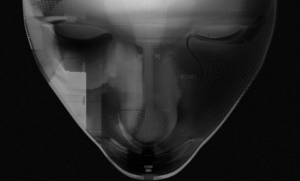
ARTIFICIAL INTELLIGENCE
OpenAI Upgrades Its Smartest AI Model With Improved Reasoning Skills
Will Knight | Wired
“The o3 model scores much higher on several measures than its predecessor, OpenAI says, including ones that measure complex coding-related skills and advanced math and science competency. It is three times better than o1 at answering questions posed by ARC-AGI, a benchmark designed to test an AI models’ ability to reason over extremely difficult mathematical and logic problems they’re encountering for the first time.”
ROBOTICS
New Physics Sim Trains Robots 430,000 Times Faster Than Reality
Benj Edwards | Ars Technica
“On Thursday, a large group of university and private industry researchers unveiled Genesis, a new open source computer simulation system that lets robots practice tasks in simulated reality 430,000 times faster than in the real world. …’One hour of compute time gives a robot 10 years of training experience. That’s how Neo was able to learn martial arts in a blink of an eye in the Matrix Dojo,’ wrote Genesis paper co-author Jim Fan on X, who says he played a ‘minor part’ in the research.”
AUTOMATION
Waymo Still Doing Better Than Humans at Preventing Injuries and Property Damage
Andrew J. Hawkins | The Verge
“They found that the performance of Waymo’s vehicles was safer than that of humans, with an 88 percent reduction in property damage claims and a 92 percent reduction in bodily injury claims. Across 25.3 million miles, Waymo was involved in nine property damage claims and two bodily injury claims. The average human driving a similar distance would be expected to have 78 property damage and 26 bodily injury claims, the company says.”
BIOTECH
A Third Person Has Received a Transplant of a Genetically Engineered Pig Kidney
Emily Mullin | Wired
“Towana Looney, 53, is off of kidney dialysis after undergoing the procedure at NYU Langone Health on November 25. She was discharged from the hospital on December 6, and her doctors say she is in good health. Her surgery is the latest in a series of similar procedures known as xenotransplantation, the practice of transplanting organs from one species to another.”
SPACE
We’re About to Fly a Spacecraft Into the Sun for the First Time
Eric Berger | Ars Technica
“On Christmas Eve, the Parker Solar Probe will make its closest approach yet to the Sun. It will come within just 3.8 million miles (6.1 million km) of the solar surface, flying into the solar atmosphere for the first time. Yeah, it’s going to get pretty hot. Scientists estimate that the probe’s heat shield will endure temperatures in excess of 2,500° Fahrenheit (1,371° C) on Christmas Eve, which is pretty much the polar opposite of the North Pole.”
TECH
Smart Glasses Won Me Over, and This Is the Pair That Did It
Joanna Stern | The Wall Street Journal
“Meta’s Ray-Bans and its prototype Orion hint at the future of smart glasses—sleek, stylish and truly wearable. This was the year smart glasses won me over. These lighter-weight face computers are the next step in how we interact with each other and our surroundings. This isn’t virtual-reality or a detour to the metaverse—you see the real world, just with digital stuff in it. And you look at your phone a lot less.”
ROBOTICS
‘Deep Research’ Shows How Google Can Win the AI Race
Mark Sullivan | Fast Company
“After I agreed to the plan, the agent got busy. …I watched as it raced over the internet and began compiling a list of sources. About three minutes later it had compiled a 60-item list of source articles and publications, including research papers, journal articles, Medium posts, and Reddit discussions. From all these sources, the agent synthesized a 2,100-word, citation-filled essay that answered my question. Impressive.”
FUTURE
How to Disappear Completely
s.e. smith | The Verge
“We are watching the internet slip away as websites and apps rise and fall, swallowed by private equity, shuttered by burnout, or simply frozen in time—taking with it our memories, our cultural phenomena, our memes. …How comfortable are we with the disappearance of entire swaths of careers and artistic pursuits? And who is making these decisions—private equity or journalists, AI or archivists, billionaires or workers? The answers to these questions, and the way we define ourselves today, will shape our culture of the future.”
Image Credit: Resource Database on Unsplash
* This article was originally published at Singularity Hub

0 Comments